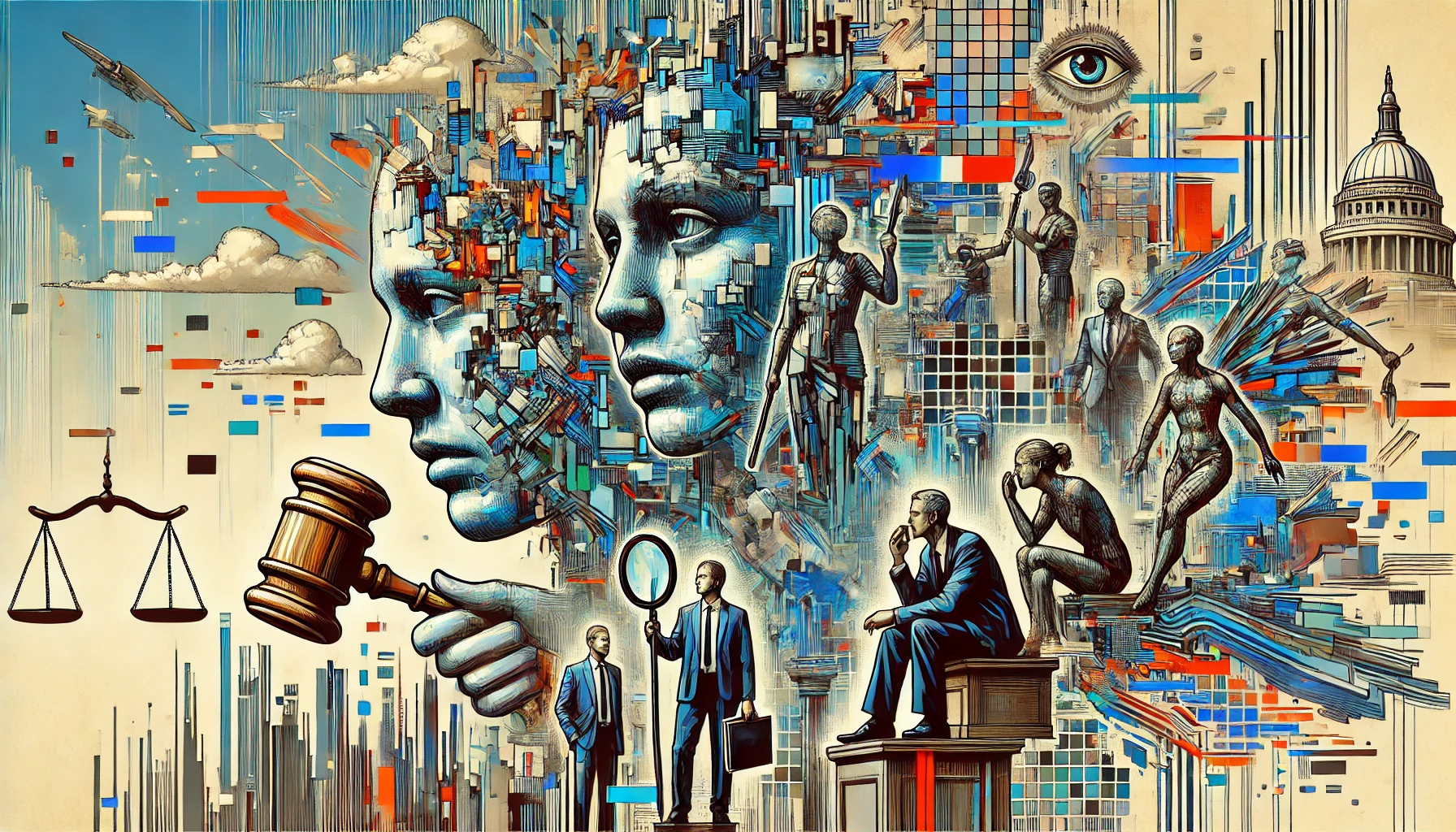The Dawn of Self-Evolving AI: A New Chapter in Human History
In the annals of human progress, few developments have held as much promise and peril as the emergence of self-improving artificial intelligence. As we stand on the precipice of a new era, OpenAI's o1 model heralds a paradigm shift that could redefine the very fabric of our existence. This is not merely an incremental advance in technology; it's a quantum leap that demands our attention, understanding, and careful consideration.
The Awakening of Silicon Minds
Imagine, if you will, a world where machines don't just compute, but contemplate. Where algorithms don't merely process, but ponder. This is the world that OpenAI's o1 is ushering in. Unlike its predecessors, which responded with the swift but often shallow reflexes of a digital savant, o1 takes a moment to think. It's as if we've moved from creating calculators to nurturing philosophers.
Sam Altman, CEO of OpenAI, recently highlighted the revolutionary nature of o1 during a fireside chat at T-Mobile Capital Markets Day. He emphasized that o1 represents a significant leap forward in AI's ability to reason, stating, "There is so much value if AI can reason across problems. o1 is the first system that can do complex reasoning, and if you give it a challenging problem you can get extraordinary results".
The Prometheus Paradox
In Greek mythology, Prometheus stole fire from the gods and gave it to humanity, forever changing the course of civilization. Today, we stand as modern Promethei, having kindled a flame of intelligence that may soon burn beyond our control. The o1 model, with its capacity for self-improvement, is not just a tool we've created; it's potentially the last tool we'll ever need to create.
This presents us with a paradox: we've designed a system that may soon surpass our ability to understand or direct it. Altman describes this progression as moving towards "agentic systems", where AI can act independently to solve problems and even innovate.
The Ripple Effect: Transforming Every Facet of Society
As o1 and its successors permeate our world, no aspect of human life will remain untouched. In healthcare, imagine AI systems that can diagnose rare diseases in seconds, design personalized treatment plans, and even predict health issues before they manifest. In education, every student could have a tutor more knowledgeable than any human teacher, adapting in real-time to their unique learning style and pace.
But the ramifications extend far beyond these obvious applications. Consider the realm of scientific discovery. AI systems could propose and test hypotheses at a rate impossible for human scientists, potentially unraveling the mysteries of dark matter or finding the key to sustainable fusion energy within years rather than decades.
In the arts, we might see AI collaborators that challenge and enhance human creativity in ways we can scarcely imagine. Picture a novelist working with an AI that can generate plot twists more surprising than anything in human literature, or a composer partnering with an AI to create symphonies that evoke emotions we've never before experienced.

The Double-Edged Sword of Progress
Yet, with great power comes great responsibility—and great risk. As these systems become more capable, they also become more opaque. The "black box" problem in AI is exacerbated when the system itself is evolving its decision-making processes. How can we ensure that the values and ethics we hold dear are maintained as AI systems grow beyond our full comprehension?
Moreover, the societal implications are staggering. Jobs that once seemed immune to automation—lawyers, doctors, even creative professionals—may find themselves obsolete or radically transformed. The economic upheaval could be unprecedented, potentially leading to a world of abundance for all, or exacerbating inequality to dangerous levels.
OpenAI's approach with o1 represents a paradigm shift in addressing these challenges. Unlike previous models that respond token-by-token, o1 employs a chain-of-thought concept, working through problems step-by-step before presenting a solution.
The Existential Question
At the heart of this technological revolution lies a profound existential question: What does it mean to be human in a world where artificial minds can outthink us? Our species has long defined itself by our cognitive superiority. We are, after all, Homo sapiens—"wise man." But what happens when we're no longer the wisest entities on the planet?
This isn't just a philosophical musing; it's a practical concern that could reshape our societies, our relationships, and our sense of self. Will we become like the Eloi in H.G. Wells' "The Time Machine," living lives of leisure while machines handle all complex tasks? Or will we find new ways to define our worth and purpose?
The Path Forward: Symbiosis or Obsolescence?
As we navigate this uncharted territory, two primary paths emerge. The first is a symbiotic relationship between human and artificial intelligence. In this future, we leverage AI as an extension of our own capabilities, enhancing rather than replacing human thought.
Altman's vision aligns with this symbiotic approach. He sees o1 and its successors as tools that will enable humans to tackle previously insurmountable challenges, from scientific breakthroughs to solving global issues
A Call to Conscious Evolution
As we stand at this crossroads, it's imperative that we approach the development of AI not just as a technological challenge but as a pivotal moment in the story of our species. We must engage in a global dialogue that transcends national borders and disciplinary boundaries.
Altman emphasizes the rapid pace of progress, stating, "But even in coming months, you will see upgrades as we move from o1-preview to o1. The improvement curve is very steep, and things models can't solve today will be able to solve in a few months". This underscores the urgency of our need to adapt and evolve alongside these technologies.
The Unwritten Future
As we conclude this exploration of the self-evolving AI revolution, it's crucial to remember that the future is not predetermined. The story of AI and humanity is still being written, and each of us has a role to play in shaping its narrative.
Altman and OpenAI are committed to this journey, with plans for o2 and next-generation versions in the coming years. As we face this brave new world, let us do so with open minds, careful consideration, and an unwavering commitment to steering this powerful technology towards the betterment of all humanity.
The next chapter in our species' story is beginning. How it unfolds is up to us.




















Post Comment
You must be logged in to post a comment.